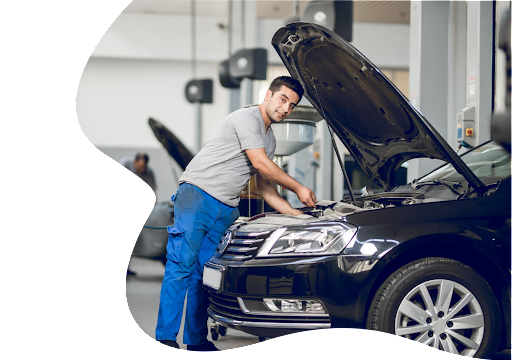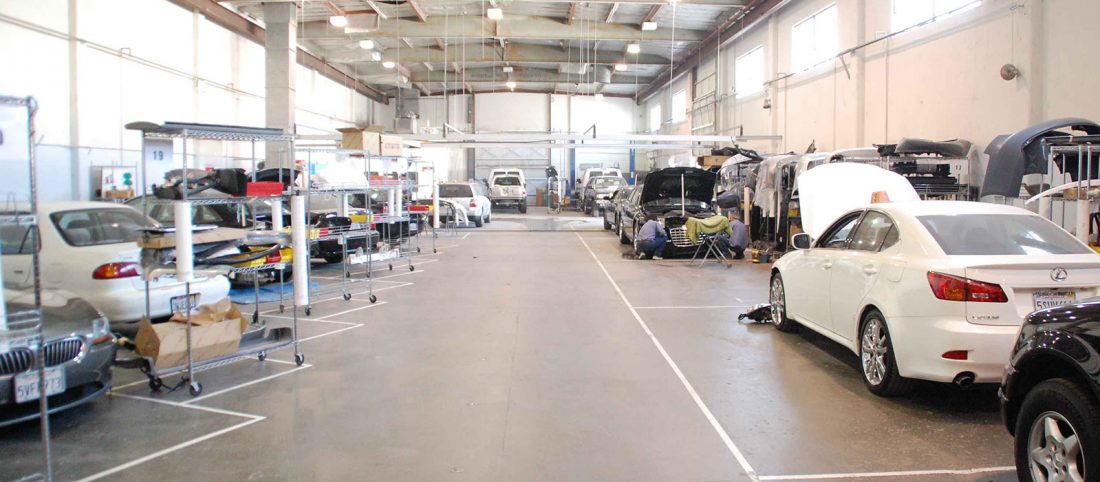All Categories
Featured
Your automobile's brakes are just one of one of the most critical parts in ensuring your security and the safety of others when driving. Normal brake inspections are important to maintaining optimum stopping efficiency and preventing expensive repair work. Whether you're a seasoned automobile owner or a brand-new chauffeur, recognizing brake inspection guidelines can assist you remain aggressive about maintenance and ensure your automobile is constantly roadworthy.
- Why Brake Inspections Issue. Brakes go through consistent wear and tear. The even more you drive, the more rubbing your brake pads endure, eventually bring about lowered braking performance. Without proper inspection, it's tough to determine when your brakes might be in need of fixing. Regular brake checks aid identify issues at an early stage, preventing potential failures that might place you at threat.
A well-maintained brake system makes certain quick, receptive stopping power, especially in emergency situations. It additionally aids expand the life of your lorry, as ignoring brake maintenance can result in a lot more serious, expensive troubles later on.
- Signs You Need a Brake Evaluation. While it's crucial to have your brakes evaluated occasionally, specific indications might indicate that they need focus. Watch (and ear) out for these warning signals:
Squealing or Grinding Sounds: Uncommon audios, particularly a shrill squeal or grinding noise, typically imply that your brake pads are worn down. Vibration or Pulsation: If you really feel vibrations or a pulsing experience when pushing the brake pedal, maybe an indication of warped rotors or irregular brake pad wear. Minimized Brake Responsiveness: If your brakes really feel much less responsive or you need to push the pedal harder to reduce down, it may suggest air in the brake lines or reduced brake liquid. Pulling away: If your automobile pulls away when stopping, it can mean unequal brake pad wear or a brake fluid leak. Dashboard Caution Lights: Some cars have brake-related warning lights that suggest concerns like reduced brake fluid or worn brake elements. If you observe any of these symptoms, it's critical to have a specialist mechanic execute a brake assessment as quickly as possible.

- What Takes place Throughout a Brake Inspection? During a brake evaluation, a mechanic will check a number of vital elements of the stopping system to ensure whatever is in functioning order. Below's what you can expect throughout the procedure:
Brake Pads and Shoes: The technician will evaluate the thickness of the brake pads or shoes. If they're also thin, they'll require to be replaced. Brake Rotors: Blades are the discs that the brake pads press against to slow your car down. They'll be inspected for any kind of indicators of wear, scoring, or warping. Brake Liquid: Low or contaminated brake liquid can impair stopping efficiency. The professional will examine the fluid degree and high quality and top it up or purge it if needed. Brake Lines and Hoses: Brake lines carry liquid from the master cyndrical tube to the brakes. The mechanic will examine for any leaks, splits, or damages to guarantee correct liquid flow. Brake Calipers and Wheel Cyndrical Tubes: Calipers and wheel cylinders push the brake pads versus the rotors or drums. The technician will certainly look for wear, leaks, and correct operation. 4. Exactly how Typically Should You Have Your Brakes Inspected? The frequency of brake inspections depends on factors like your driving habits, the type of vehicle you drive, and the setting in which you drive. As a basic guideline, it's an excellent idea to have your brakes evaluated every 12,000 miles or when a year. Nonetheless, if you experience any of the warning indicators discussed earlier, it is essential to get your brakes inspected instantly.
For those who frequently drive in heavy web traffic, hilly surface, or rough climate condition, even more constant evaluations may be required.
- Importance of Timely Brake Repairs. When you find a problem with your brakes, it's important to resolve it as soon as possible. Postponing brake repairs can cause even more substantial damage to your stopping system, resulting in higher repair service prices. In severe cases, disregarding brake problems can bring about finish brake failure, which is a significant safety and security risk.
By remaining on top of brake maintenance and addressing problems immediately, you ensure that your brakes continue to execute as intended, maintaining you and your passengers risk-free on the road.
Final Thought: Keep Your Brakes in Leading Forming. Brake examinations are a simple yet essential part of vehicle maintenance. By recognizing the importance of regular examinations, knowing the indicators of brake problems, and staying positive with repairs, you can guarantee your car's braking system continues to be in optimal problem. Routine brake checks offer assurance, knowing that your cars and truck prepares to react when you need it most. Focus on brake upkeep-- your safety and security depends on it.
Latest Posts
Grab Limited-Time Auto Repair Specials in Chicago at Montclare Auto Repair
Discover Budget-Friendly Auto Repairs with Montclare’s Monthly Service Specials
Explore the Top Auto Repair Discounts in Montclare, Chicago
More
Latest Posts
Grab Limited-Time Auto Repair Specials in Chicago at Montclare Auto Repair
Discover Budget-Friendly Auto Repairs with Montclare’s Monthly Service Specials
Explore the Top Auto Repair Discounts in Montclare, Chicago
